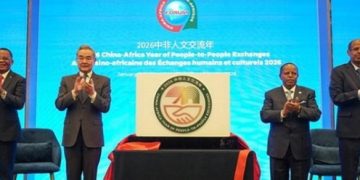- Finance Minister and Chairman of the Nigeria Customs Service Board, Wale Edun (left), and the Comptroller-General of Customs, Bashir Adeniyi
By Anthony Nwachukwu
Effect from today, September 8, 2025, a $300 De Minimis threshold value will apply on low-value consignments imported through express shipments or by passenger baggage, as approved by the Nigeria Customs Service Board (NCSB).
The NCSB decision aligns with the best global practices that aim to simplify clearance processes for low-value consignments, enhance trade facilitation, and provide clarity for e-commerce stakeholders and travelers, the Customs National Public Relations Officer, Abdullahi Maiwada, noted.
He explained De Minimis threshold as the value below which imported goods are exempted from payment of customs duties and related taxes established by the national legislation.
In a statement, the Customs disclosed that the board approved $300 as Nigeria’s official De Minimis threshold after a review of similar practices across continents. It said the exemption will apply to low-value imports, e-commerce consignments, and passenger baggage.
According to the statement, the threshold “is restricted to four importations per annum,” and “under the new regulation, goods valued at $300 or less will be exempted from import duties and taxes, provided they are not prohibited or restricted items.
“Similarly, passenger merchandise in baggage not exceeding the same value shall also be exempted. The framework further ensures immediate release and clearance of eligible consignments without post-release documentation, while also mandating strict enforcement measures against stakeholders who attempt to manipulate invoices or evade duty obligations.
“Noncompliance penalties include forfeiture, arrest, and other sanctions stipulated in the NCS Act, 2023.”
Meanwhile, the customs said it will establish multi-channel helpdesk platforms to ensure the smooth implementation of De Minimis regulation. It further explained that “these dedicated channels are designed to serve as direct points of engagement for stakeholders, providing timely guidance on compliance requirements, addressing inquiries, and resolving complaints that may arise during implementation.”
This initiative is expected to stimulate cross-border e-commerce, minimise clearance delays, and further consolidate Nigeria’s position as a regional leader in trade facilitation, it further stated.
































